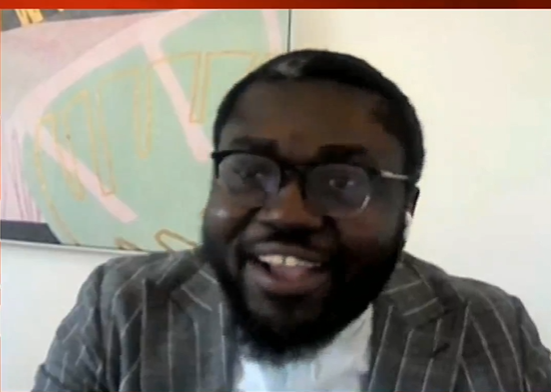Researcher at the University of Cambridge Faculty of Law, Oliver Barker-Vormawor says the tragedy of Ghana practicing democracy is that it wipes out the past.
In his view, there are many voices that exist now and one could be misled if not properly informed.
His comment comes on the back of arguments by some school of thoughts on the Broadcasting Bill; claiming that it sets limitations for persons who would like to penetrate the media space.
According to Mr. Barker-Vormawor, all persons against the Bill must re-align themselves and ponder on all the reasons why it is important that the Bill is passed and not only rely on the views of persons who try to downplay the importance of the Bill.
He also bemoaned the situation where people misunderstood the logic behind a Bill and its relevance in governance.
“The tragedy of democracy I will say is that it wipes out the past from our collective memory and the evils that we tend to guard against becomes contextualized.
"We forget the reason why a provision was put together in the first place. So the question we need to ask ourselves is 'why is this bill bringing back authorization at this particular time'?" he quizzed.
He advised that all persons analyzing the Bill by the limitations it sets against unauthorised persons entering the media space must "spend a little more time with the Bill to fully appreciate the scope, the history and its purpose."
"Because if you do that you give yourself a broader view to understand how you can narrowly constitute and understand the limitations to it," he added.
Mr Barker-Vormawor also explained that there was certain vital information about the Broadcasting Bill that is useful in terms of the need to clarify and define the roles of the two regulatory bodies in the Media sector, that is the National Media Commission and the National Communication Authority.
The Broadcasting Bill seeks to improve the falling standards in Ghana’s electronic media sector and ensure that it starts to embrace modern best practices.
The Bill will provide comprehensive legislation on broadcasting services regulated by the National Media Commission and the National Communications Authority in a manner consistent with the Constitution.
Additionally, Information Minister, Oppong Nkrumah in an interview with the host of JoyNews' 'The Probe' Emefa Apawu stated that the Broadcasting Bill will in no way dictate to the media what they can and cannot publish in their line of work but would rather ensure that the media transmits contents that are right and unprovocative.
“Nobody can dictate to the media what to publish, the media sector is one of the most vibrant sectors,” Oppong Nkrumah said.
Latest Stories
-
DAMC, Free Food Company, to distribute 10,000 packs of food to street kids
25 minutes -
Kwame Boafo Akuffo: Court ruling on re-collation flawed
45 minutes -
Samuel Yaw Adusei: The strategist behind NDC’s electoral security in Ashanti region
47 minutes -
I’m confident posterity will judge my performance well – Akufo-Addo
59 minutes -
Syria’s minorities seek security as country charts new future
2 hours -
Prof. Nana Aba Appiah Amfo re-appointed as Vice-Chancellor of the University of Ghana
2 hours -
German police probe market attack security and warnings
2 hours -
Grief and anger in Magdeburg after Christmas market attack
2 hours -
Baltasar Coin becomes first Ghanaian meme coin to hit DEX Screener at $100K market cap
3 hours -
EC blames re-collation of disputed results on widespread lawlessness by party supporters
3 hours -
Top 20 Ghanaian songs released in 2024
3 hours -
Beating Messi’s Inter Miami to MLS Cup feels amazing – Joseph Paintsil
3 hours -
NDC administration will reverse all ‘last-minute’ gov’t employee promotions – Asiedu Nketiah
4 hours -
Kudus sights ‘authority and kingship’ for elephant stool celebration
4 hours -
We’ll embrace cutting-edge technologies to address emerging healthcare needs – Prof. Antwi-Kusi
4 hours

